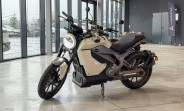China's automakers sidestep EU tariffs, doubling market share
When the European Union erected a tariff wall last year to slow the influx of Chinese-made electric cars, the intended message was clear: protect domestic industry. However, Chinese automakers seem to have read a different memo. Instead of retreating, companies like BYD, Geely, and SAIC have executed a strategic pivot that has seen them not only weather the storm but double their share of the European car market.
Faced with duties as high as 35% on their electric vehicles, Chinese manufacturers ramped up exports of hybrid and gasoline-powered cars, which are exempt from the targeted tariffs. They also zeroed in on southern European countries such as Italy and Spain, where the dominance of German and French brands is less pronounced than in the north. The results have been striking. According to data from JATO Dynamics, Chinese brands captured 4.9% of the EU's new car market in April, a significant leap from 2.4% just one year prior, translating to 53,000 vehicles sold in a single month.

The growth is not just in traditional vehicles. Paradoxically, even with the new financial penalties, Chinese manufacturers have managed to sell more of the very electric cars the tariffs were meant to discourage. Sales of electric vehicles from Chinese brands surged by 59% in April, far outpacing the 26% growth seen by other automakers.
This momentum led to quite a milestone: in April, Europeans registered 7,231 BYD electric cars compared to 7,165 from Tesla, marking a rare month where the American EV giant was outsold. Tesla's dip has been attributed partly to European buyer pushback against the political activities of its chief executive, Elon Musk.
This whole situation has created an ironic twist in the EU's policy. The tariffs, designed to protect the local EV market and support the bloc's green transition, have inadvertently encouraged the sale of more fossil-fuel-burning cars. According to Schmidt Automotive Research, two-thirds of the vehicles sold by Chinese companies in Europe during the first quarter were not pure electric cars but hybrids or conventional gasoline models.

The agility of Chinese carmakers is a source of awe and concern for European competitors. Chinese companies can design and produce a new model in six months, a process that takes their German counterparts at least two years. This speed allows them to quickly respond to market demands.
The road ahead looks even better for ambitious automakers like BYD. The company is already laying the groundwork for massive growth by building new factories in Hungary and Turkey. Once these plants begin production next year, the vehicles they build will be considered locally made and will not be subject to any of the EU's import tariffs. This will dramatically accelerate their expansion.





Facebook
Twitter
Instagram
RSS
Settings
Log in I forgot my password Sign up